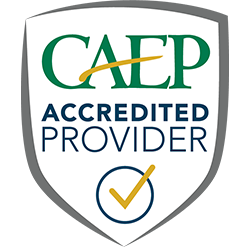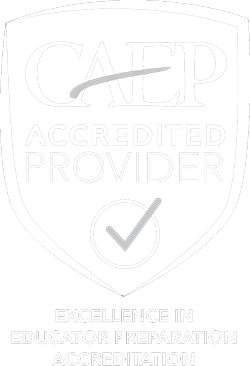Bachelor of Education (B.Ed.) in Middle Education – Science
Inspire Students with an Understanding of Creation by Earning a B.Ed. in Middle Education – Science
Do you have a passion for science – ecosystems, weather patterns, anatomy, and understanding the universe from the molecular level to the vast expanse of space? If so, you’re probably excited about the idea of using your enthusiasm and knowledge to inspire the next generation of doctors, lab technicians, and scientists. Liberty University’s Bachelor of Education (B.Ed.) in Middle Education – Science degree will combine your love of the sciences with your desire to pass your wisdom on to others.
As someone who will be teaching adolescents, your preparation and understanding of their developmental stage is crucial. With this degree, you’ll gain core concepts in childhood and adolescent development, as well as specific teaching methods needed for middle grades. Upon graduation, you can be prepared to teach preteens general and science-specific concepts.
As you make your decision to partner with Liberty University, you’re deciding to gain skills, experience, expertise, and credentials needed to be a middle school teacher in Virginia. We’re excited about partnering with you as you learn to be someone who makes a serious and positive impact on the next generation.
Pursue Your Degree with Confidence
- Liberty University is accredited by SACSCOC, the Southern Association of Colleges and Schools Commission on Colleges.
- Liberty University’s School of Education meets rigorous national standards for educator preparation set by the Council for the Accreditation of Educator Preparation (CAEP).
- You will complete 90 practicum hours and at least 1 full semester of student teaching prior to graduation.
- The Educational Technology Lab provides students with resources, software, and equipment to help promote learning with technology.
- All of our faculty who oversee licensure courses have K-12 experience and a current teaching license.
- You will have the opportunity to do your student teaching in various locations throughout Virginia, including the Washington D.C. public school system through our Washington Fellowship program.
What Will You Learn?
- Foundational subjects like English, communication, math, history, and psychology
- How to educate children and adolescents
- Instructional design for middle classrooms
- Classroom teaching
- How to teach reading, writing, and language
- Behavioral and individual differences between students
- General chemistry, environmental science, and astronomy
This program has been approved by the Virginia Department of Education. Licensure requirements may vary by state. Please research your state’s licensure or reciprocity requirements here: https://www.liberty.edu/statelicensure/.
Career Options for B.Ed. in Middle Education – Science Graduates
Upon successful completion of the B.Ed. in Middle Education, you will be prepared with a well-respected degree in education and Virginia licensure as well as 90 practicum hours and at least 1 full semester of student teaching. This degree will equip you with all the necessary resources, tools, and knowledge needed to succeed as a middle school teacher.
Practical Learning Opportunities for B.Ed. Students
- You will complete 90 practicum hours and at least 1 full semester of student teaching before you graduate.
- Find the resources you need to promote learning through technology in our on-campus Educational Technology Lab.
- Your education professors have real-life experience teaching children and adolescents, and if they are overseeing practicum requirements, then they also have a current teaching license.
- You’ll have a variety of locations to choose from for your student teaching semester, including Washington, D.C.
- Pursuing our Bachelor of Education licensure tracks may make you eligible for the Federal TEACH Grant.
Admission Requirements for Our Undergraduate Degree Programs
Every application is reviewed by the admission committee on a case-by-case basis, meaning there are no set minimums for acceptance. However, all applicants must submit the following documents* for admission:
- Admission application
- Official high school transcripts
- Official college transcripts (if applicable)
- Results from the CLT, SAT, or ACT are not required for admission, but may be used in consideration for merit-based aid.
- Admission essay
*Note that additional documentation may be requested by the admission committee after your application has been received.
These rates are reflective of academic year 2024-2025. Tuition rates may change annually. For the most current information, please visit our LU Tuition Cost page.
Credit Hours

Available On Campus
Class Type
Residential
Transfer Credits
Transfer in up to 75% of the degree total
Next Start Date
Aug 18, 2025
Accreditation
CAEP






